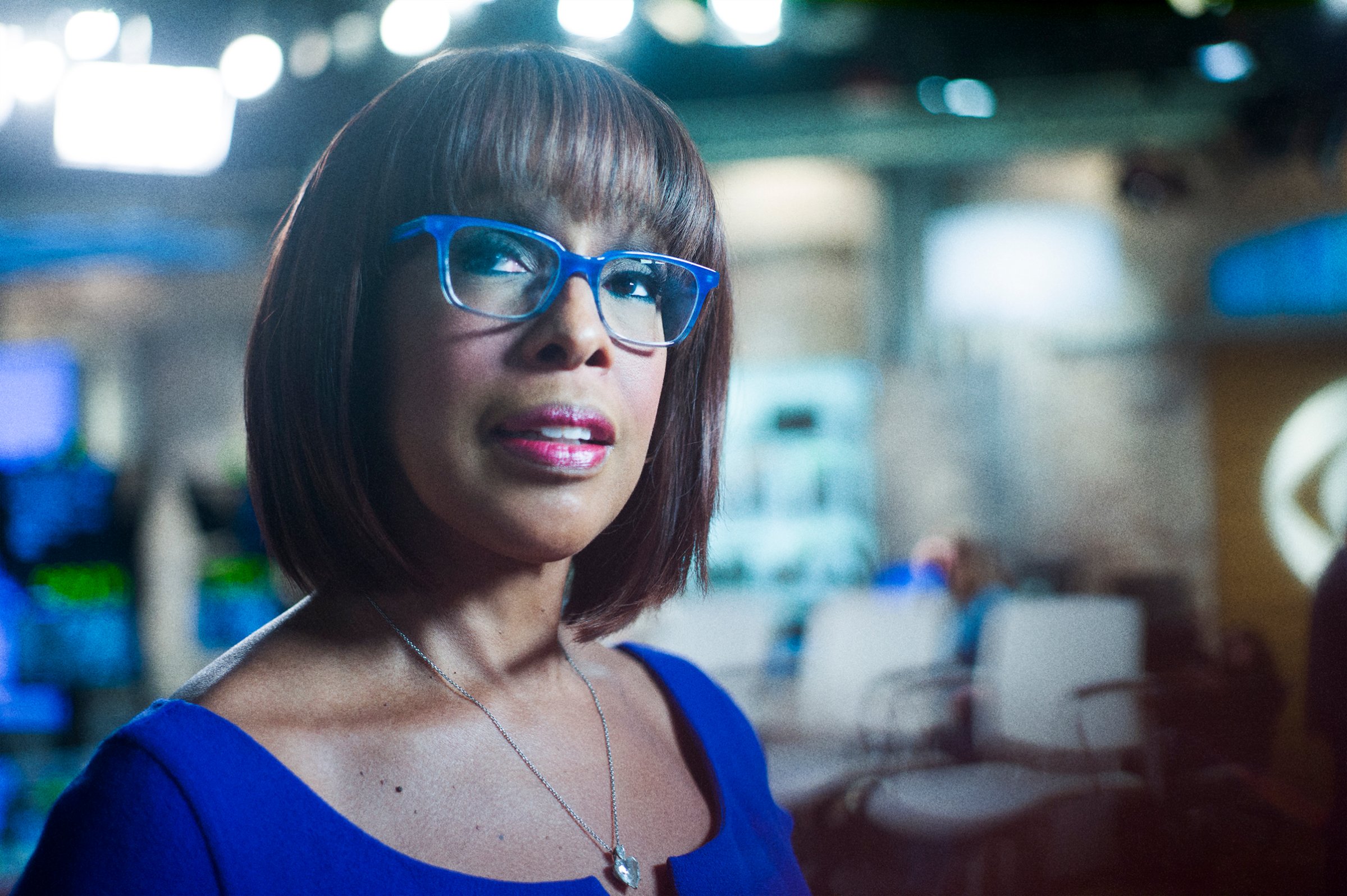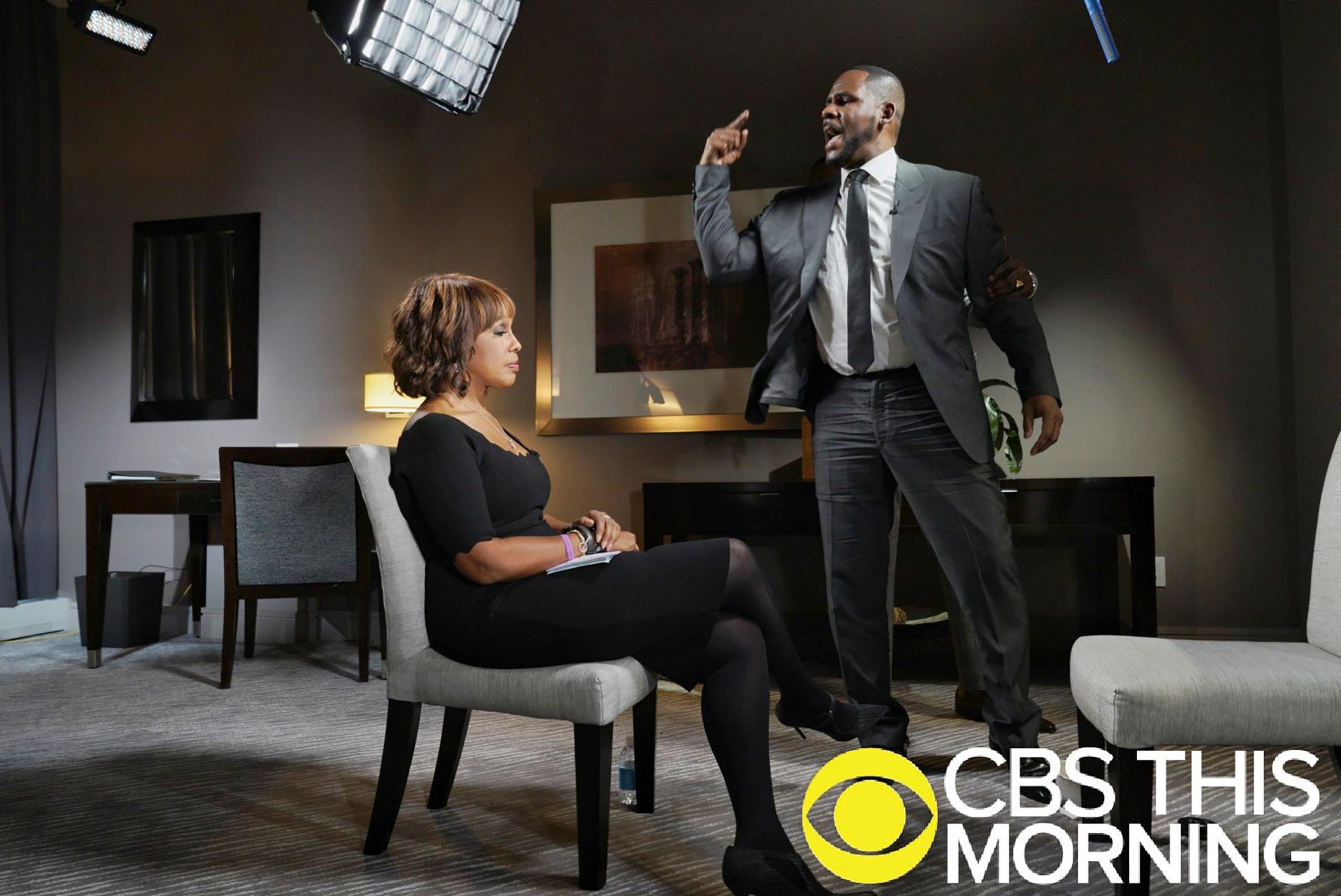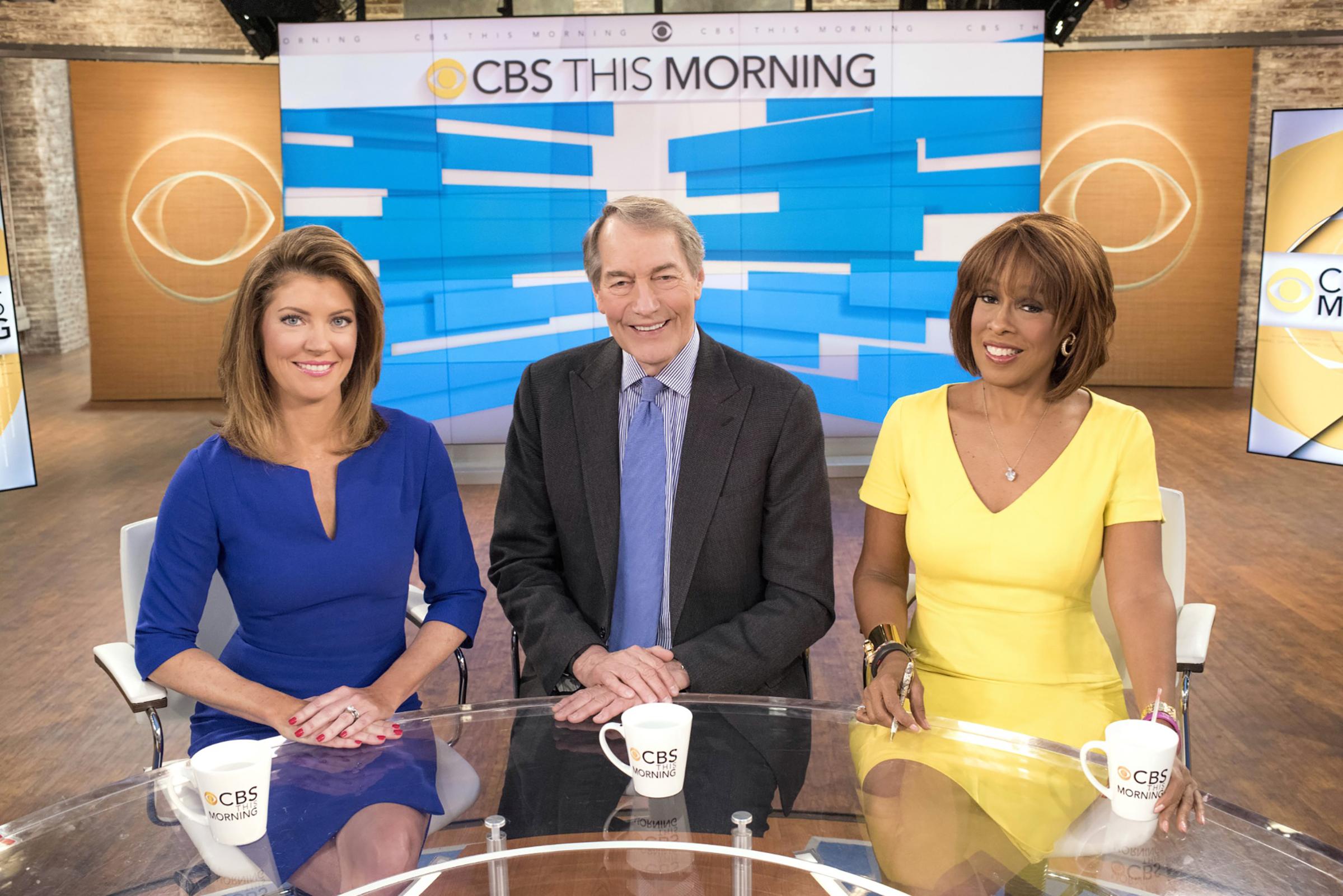
Look upon Gayle King, ye mere mortals, and weep. Unless you set your alarm for 3:22 a.m., have two full-time jobs, got your biggest break at 56, are the dream interviewer of most living authors and once received a $1.2 million check from your best friend, you are not keeping up. Do you buy your co-workers lottery tickets when the jackpot gets above $300 million? Slacker. Somewhere in the world is someone prepared to say something even a tiny bit unflattering about you? Thought so. King has you beat. King has us all beat.
This was not supposed to happen. King, 64, had carved a very comfortable groove in the public consciousness as Oprah’s best friend. She was the plus-one, the sidekick, the friendly wingwoman you bring along to the party because everybody likes having her around and she doesn’t threaten anyone. She was Robin to Oprah’s Batman, Keith to Oprah’s Mick, Samwise to Oprah’s Frodo. She was not offered the role of star of the show.
But King is not a just-meet-expectations kind of person. She is now the most senior host of one of the most watched news shows on TV, CBS This Morning. And she just pulled off a once-in-a-decade interview–more jaw-dropping than when Diane Sawyer introduced us to Caitlyn Jenner or when Anderson Cooper talked to Stormy Daniels.

Perhaps the R&B star R. Kelly, 52, thought King would throw enough softball questions that he could blast a home run past her polite but firm inquiries about whether he’d held women against their will or physically abused them, or had sex with minors, as has been alleged. (Kelly was charged with 10 counts of aggravated criminal sexual abuse in February; he pleaded not guilty.) During the interview, which took place at the Trump International Hotel and Tower in Chicago on March 5, he ranted to the camera, played the victim and claimed his accusers were lying. At one point he jumped up and addressed the camera. “You killing me, man! This is not about music! I’m trying to have a relationship with my kids!” As he towered over King, she sat and watched him, staying just cool enough to let him keep ranting but just warm enough to keep him in the room. King throws the kind of softballs you don’t worry about until someone calls strike three.
Much was made of King’s ability to remain calm during the interview. But it’s not like she’s new at this. Lots of people seem not to know it, but she has been a TV journalist for over 40 years, first in Baltimore (where she met Oprah), then in Kansas City, Mo., then for 18 years in Hartford, Conn. She was not burning with ambition to get national exposure. “I liked it there,” said King in her office, a few months before the R. Kelly interview. “I liked having a sense of community. I liked being a big fish in a little pond. I got married there, divorced there, had [two] children there. I’ve never felt that, ‘Oh, now, that you’re on national news, you’ve made it.'”
In 1999, as the Connecticut job was wrapping up, she joined O, the Oprah Magazine. “It was a learning curve because I had no magazine experience,” she says. “Oprah and I joked that we were Stevie Wonder and Jose Feliciano. It was the blind leading the blind.” Nevertheless, the magazine, a joint venture with Hearst, thrived and now has a circulation of 2.4 million.
TV remained her first love, however, a holdover from when her engineer father took the family for a few years to Turkey, and she had to go without it. She took whatever little assignments she could get, mostly at ABC, kept up her habit of exceeding expectations, and when CBS reconfigured its morning show in 2011, she was invited to take a seat. These days she often goes directly from CBS to her editor-at-large job at O for a few (more) hours’ work before getting ready for an evening party or obligation.

“I believe you can ask any question,” she says. “Even a very difficult question. You just have to have the right time. You have to have the right setting.” When interviewing Elizabeth Smart, who was kidnapped and held for nine months when she was 14, for example, King asked the difficult but necessary question of how she didn’t get pregnant by saying, “It’s a miracle you didn’t have a baby.” When interviewing Kelly’s two live-in girlfriends, Azriel Clary, 21, and Joycelyn Savage, 23, she was more direct: “Is it a three-way sexual relationship?” she asked. Clary refused to answer, saying she imagined King wouldn’t either. “This is a very different circumstance,” noted King, before moving on.
“What I wanted to say–but I didn’t want to get snippy with her the way that she got snippy with me–was ‘Listen, listen, little girl, you don’t even know what you’re saying right now,'” says King. “‘And one of these days you’re going to regret this moment.’ But I decided there’s no point in doing that. And by the way, I talked to her father yesterday, who apologized for his daughter’s behavior.” That’s right, King can facilitate a young woman displaying her worst self on TV and have her dad apologize for her.
King is prepared to ask any question, and to deal with any outburst, because she is one of the world’s most assiduous doers of homework. If she’s interviewing an author–which she does almost daily–she reads the whole book. When I visited the set of CBS This Morning, she came into the green room several times to make sure that day’s guests were O.K. Some interviewers like to have their guests off-balance. Not King: she even went to meet Kelly and his dogs, Popcorn and Believe, 15 minutes before the cameras rolled. “I didn’t want him to walk in the room and sit in the chair and the first time we had any conversation, it’s lights, camera, action,” she says.
Perhaps “Robert,” as King kept calling him (she uses people’s first names the way police use sirens), or his team should have conferred first with Brené Brown, the author of several best-selling books on human emotions, who has worked with both King and Oprah. “Don’t mistake her kindness for softness,” Brown says of King. “People always ask me what [she and Oprah] share in common. The only answer I come up with is that they are both equally kind and fierce. Tough and tender. That’s the highest compliment I can pay anyone.”
The oldest of four girls, King fits right in with the theory that suggests firstborns are more likely to be conscientious and high-achieving. She’s such a hall-monitor type that she told Ellen DeGeneres on air that she had never had a “marijuana cigarette.” After an unfortunate vomiting experience at a Christian youth leadership conference in high school, she doesn’t drink. “Everyone thinks I’m in recovery,” she says. “I just really like Shirley Temples.”

Despite her straight-arrow ways, it takes quite a lot to lose King’s loyalty. She caught her husband sleeping with another woman, and although they divorced, they are still friends. (PSA: She would like a new man, younger than her and taller than her 5 ft. 10 in., if anyone knows anyone?) Three of her CBS News colleagues were felled in quick succession after sexual-misconduct allegations: co-host Charlie Rose, 60 Minutes producer Jeff Fager and CEO Les Moonves. She remains friends with her old seatmate. “I’m not going to abandon Charlie Rose because he’s now a member of the #MeToo club,” she says.
It’s not lost on King that some of her biggest interviews, including with Kelly, have come via the same movement that brought shame on her network and, indirectly, dragged down its ratings. In February she scored interviews with Michael Jackson’s accusers, as well as the singer’s family. While she’s a supporter of the changes–“Young women coming up today will know that they will be believed”–she also hopes for a path to redemption. “I don’t think [the accused] have to be persona non grata for the rest of their lives.”
But she put pressure on her employer in September, demanding publicly that the report CBS ordered on Moonves be made public. “I didn’t even think that was a brave thing to say,” she says. “It was just so shocking to me that we could have this report, and be all lofty about how we’re going to be transparent, then not tell us what happened.” In December the network released a statement, but not the full report. (King’s contract is up this year, but she’s not discussing the negotiations.)
Trust is in short supply on the American media landscape. It is no longer simply accorded the people who bring the news. King’s rise suggests that now is the time when faithful lieutenants rather than swashbuckling captains get to step up, that a solid history of loyalty and an inclination to direct attention where it needs to be directed, rather than to be at the center of it, is what viewers want. “I don’t run away from ‘You’re Oprah’s best friend,'” says King of her reputation. “It would be silly for me to say, ‘There’s so much more to me than that!’ That would be stupid. I think all you have to do is turn on the TV and draw your own conclusions.”
More Must-Reads from TIME
- Breaking Down the 2024 Election Calendar
- How Nayib Bukele’s ‘Iron Fist’ Has Transformed El Salvador
- What if Ultra-Processed Foods Aren’t as Bad as You Think?
- How Ukraine Beat Russia in the Battle of the Black Sea
- Long COVID Looks Different in Kids
- How Project 2025 Would Jeopardize Americans’ Health
- What a $129 Frying Pan Says About America’s Eating Habits
- The 32 Most Anticipated Books of Fall 2024
Contact us at letters@time.com